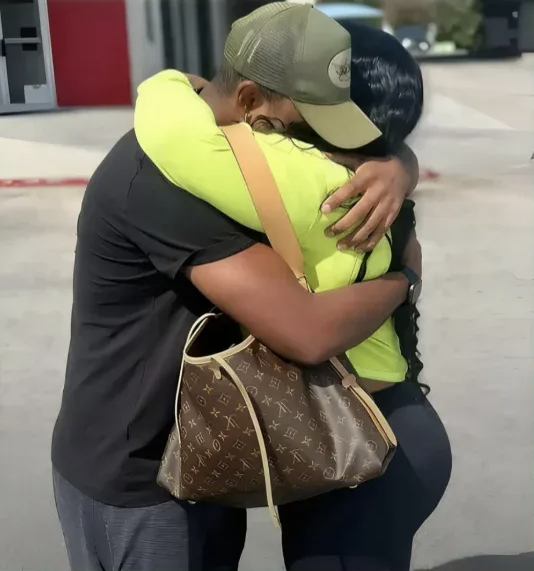
She called her first Lyft to pick up her car from the dealership. It was supposed to be a simple ride—quick, uneventful, the kind of trip you forget about five minutes after it ends. But halfway through, her driver’s phone rang. She watched his face change. Watched him go from calm to desperate in the span of a single conversation.
His car was being repossessed. He had begged the bank for two more weeks, but they wouldn’t wait. He was about to lose the vehicle he needed to work, to survive, to keep moving forward. And there was nothing he could do about it.
She knew that feeling. She had been in his situation before—trapped by circumstances, desperate for just a little more time, begging systems that don’t bend for people like her. She knew what it felt like to have everything collapsing and no way to stop it.
So without him asking, she called the bank. And she paid his account current.
The young man cried. She cried too. She told him what she needed to hear when she was in his place: “Keep pushing—better is coming. It’s a blessing to be a blessing.”
She didn’t know his full story. She didn’t know if he had family, if he had backup plans, if this was the first or hundredth time he’d faced something like this. But it didn’t matter. She saw someone drowning and threw him a lifeline, not because she expected anything in return, but because she knew what drowning felt like.
Weeks later, she reflected on the moment. She didn’t regret it. She didn’t wonder if she’d made the right choice. She just knew that kindness—real, unplanned, inconvenient kindness—has a way of finding its way back. Not always in the form you expect, but in the knowledge that you were someone’s miracle when they needed one most.
That driver didn’t lose his car that day. He kept his job. Kept moving forward. And somewhere in the back of his mind, he carries the memory of a stranger who saw him, believed in him, and refused to let him fall.
She could have stayed silent. Could have looked away, sympathized quietly, and moved on with her life. But she didn’t. Because she understood something profound: that we’re all one phone call, one missed payment, one bad break away from needing someone to catch us.
And when that moment comes, we hope there’s someone like her in the car. Someone who’s been there. Someone who remembers. Someone who pays it forward not because it’s easy, but because it’s right.